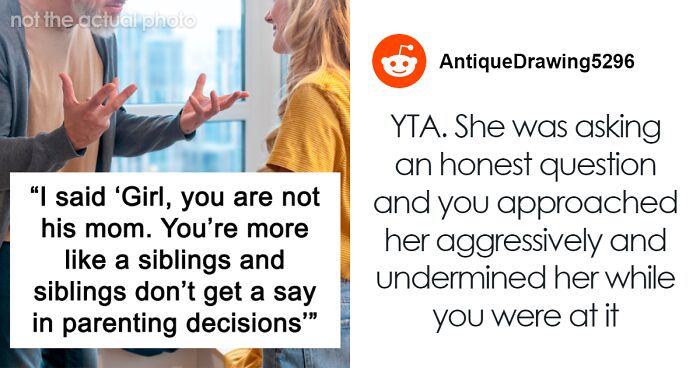
Man Gets Aggressive After Son’s Bio Mom Gets Involved In A Discussion About His Classes
It’s no surprise that parents make certain decisions for their children, especially when they’re at a young age. But at some point, kids start making up their mind by themselves, even if it’s something arguably insignificant, such as choosing their outfit for the day.
For this redditor, decision time got even more complicated when his son’s birth mother offered her two cents in parenting. When it was time for his 11-year-old son to pick an elective class at school, the woman tried standing up for what she believed the boy wanted, but his dad said she had no say in the matter.
Scroll down to find the full story below, where you will also find Bored Panda’s interview with a professor of women, gender, and sexuality studies at University of Massachusetts Amherst, author of Taking Children: A History of American Terror, Dr. Laura Briggs, who was kind enough to answer a few of our questions on adoption and the roles of adoptive and birth parents.
Until kids reach a certain age, parents tend to make the majority of decisions for them
Image credits: YuriArcursPeopleimages (Not the actual photo)
This 11-year-old had to choose an elective class in school, which caused disagreements between his dad and his birth mother
Image credits: Zinkevych_D (Not the actual photo)
Image credits: Long_Shape_4713
Open adoption does not give the birth parents any rights or responsibilities regarding the child they have relinquished
Discussing what exactly an open adoption is, Dr. Laura Briggs pointed out that a lot of people think that it gives birth parents some rights and responsibilities in their relationship to the child they placed for adoption, but in reality, it doesn’t. “It just means that the birth parents’ identities are not hidden from the child they relinquished, or rather, are not if the adoptive parent is willing to give them access.
“Adoption, in contrast to fostering, is fundamentally about legally erasing the birth parents, up to and including giving the child a new birth certificate that perpetrates a legal fiction that the adoptive parents were the birth parents. You can start out with an open adoption and still have the adoptive parent decide at any point that the birth parent cannot have any contact with the child,” Dr. Briggs explained in a recent interview with Bored Panda.
“However, we have learned a lot in the last fifty years about the effects on children of having the adoption be a secret and having them cut off from their birth parents,” the expert continued. “The psychological lessons basically can be boiled down to this: it’s harmful. Children do better, not surprisingly, with honesty, and with contact with their birth parents.
“Open adoption is basically an informal agreement between the adults in which the adoptive parent(s) hold all the cards. However, an adoptive parent who is well-informed and trying to do the right thing will often try to involve the birth parent(s) in their kid’s life. It’s a delicate dance, though, one in which some adoptive parents feel threatened, and sometimes, either adoptive parents or birth parents may be in a bad place in their lives—stressed out or ill or struggling with mental health issues—and the child, the adoptive parents, and the birth parents have to all work together to figure out what is in the best interest of the child.”
Image credits: Guillaume de Germain (Not the actual photo)
It’s important to let children make some decisions on their own
When they first enter this world, the little bundles of joy are fully dependent on other people; mainly their parents. Moms and dads look after them, feed them, change them, all the while choosing everything from food to types of games that they think are best.
Parents making decisions for their children typically lasts quite a few years, until eventually, kids take over the reins of their lives by starting to make their own decisions and, most importantly, learning from the outcomes. Experts suggest that it’s crucial to let kids experience the consequences of their actions or reap the benefits of the decisions they made, as that’s how they develop decision-making skills necessary in all further stages of their lives.
According to the Child Mind Institute, the earlier a parent can help kids be thoughtful about the impact of their decisions, the better. A clinical social worker, Grace Berman, LCSW, told the Institute that one of the best ways to start is “by giving them two options, both of which you are okay with them selecting.”
“As they get older, outline what everyday choices you’d like your child to be responsible for,” Berman suggested. “Make a list and work with your child to shift the responsibility from you to them. The more decisions they can make, the more practice they will have.” Allowing your child to practice decision making will help them develop the skill necessary for bigger decisions in the future, be it personal, professional, or otherwise.
Adoptive and birth parents might not see eye-to-eye on certain issues
The OP seemingly let his child make some decisions on his own, letting him choose whether or not he wanted to talk to his birth mom, for instance. However, when it came to schooling and choosing an elective class, he didn’t seem to be as flexible, which some redditors in the comments criticized.
But that wasn’t the only thing fellow netizens pointed out. The story seemingly split them into camps in regards to whether or not the man was a jerk to his son’s biological mother. While some said he was too harsh with the woman, others believed she shouldn’t have been sharing her “two parenting cents”.
Needless to say, no two parents raise their children the same way, not to mention the complexity of a situation when there are biological and adoptive parents involved. The latter typically put a lot of time and effort into creating a connection with their child and parent them the way they feel is best; and while some birth parents care for the child very much, too, them trying to parent the little one can become a cause for disagreements. In the OP’s case, the birth mom was arguably standing up for what the boy expressed that he wished rather than parenting the child; however, that, too, sparked a conflict between the two parents.
“Parents disagree about the best decisions to make for their children’s education all the time, and figuring out how to balance their views is something that married parents, divorced parents, and adoptive parents negotiating with birth parents have to figure out for themselves,” Prof. Briggs pointed out.
“Disagreeing about the kid’s course selection suggests a level of granular involvement in the child’s day-to-day life that I think an awful lot of birth parents don’t have and would give a great deal for. From what I read and hear from birth parents, most are lucky to get pictures and exchange letters on the child’s birthday.
“Comparing a birth parent to a sibling sounds strange to us, and certainly seems far from ideal, but it sounds to me like an adoptive parent reaching for a metaphor that doesn’t threaten their security as the ‘real’ parent. It’s also true that in a lot of adoptions, adoptive parents are not only wealthier but also much older than birth parents, which may partially inform that metaphor,” the expert suggested.
Image credits: Priscilla Du Preez (Not the actual photo)
The majority of fellow redditors seemed to think that the OP didn’t handle the situation quite well
Though, some believed that he was right to act the way that he did
Poll Question
Thanks! Check out the results:
Reddit shows overwhelmingly that he is the a*****e, but dude is just doubling down. Poor kid. It's sixth grade!
It’s also a sure way to guarantee the kid will choose his bio mom over at least ONE of his adoptive dads.
Load More Replies...Reddit shows overwhelmingly that he is the a*****e, but dude is just doubling down. Poor kid. It's sixth grade!
It’s also a sure way to guarantee the kid will choose his bio mom over at least ONE of his adoptive dads.
Load More Replies...
 Dark Mode
Dark Mode 

 No fees, cancel anytime
No fees, cancel anytime 






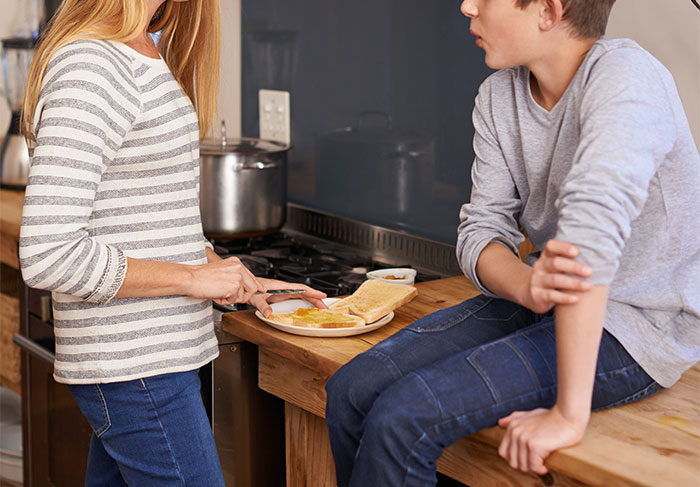
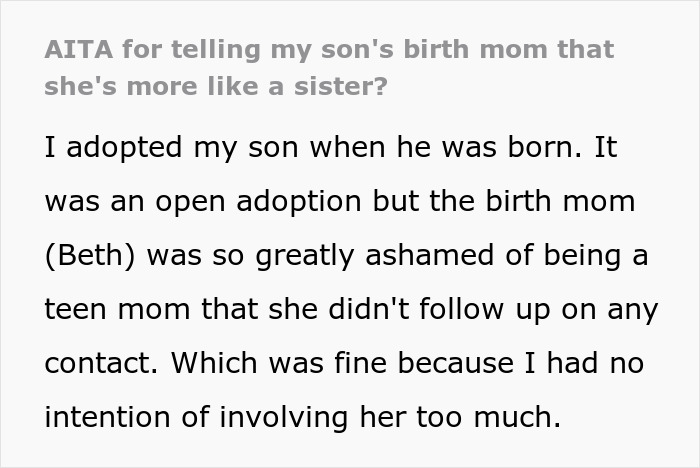
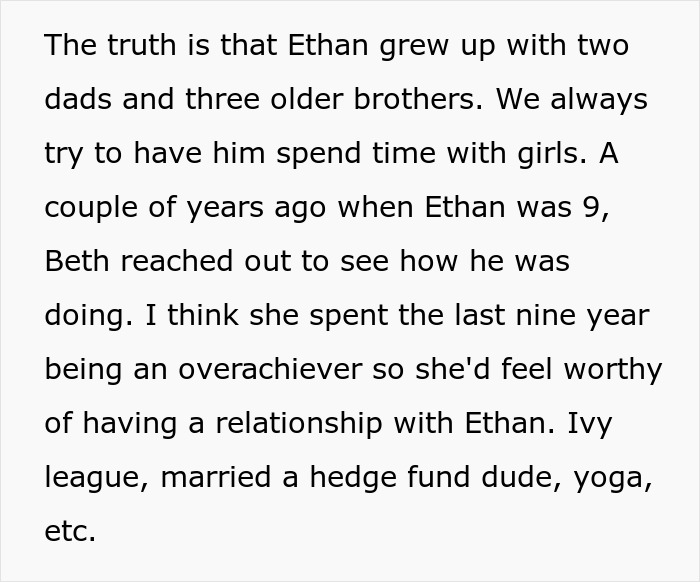
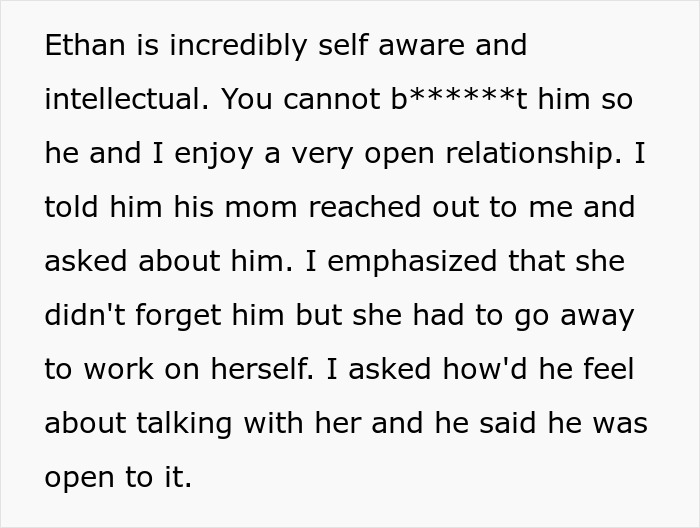


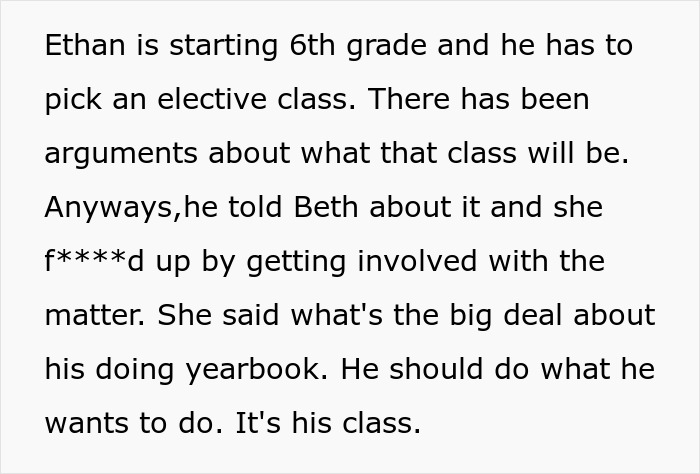
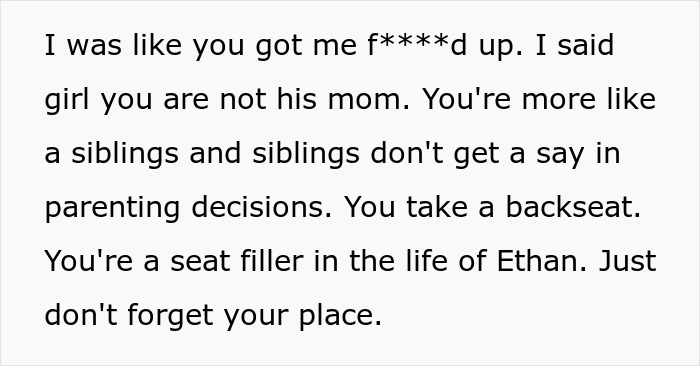
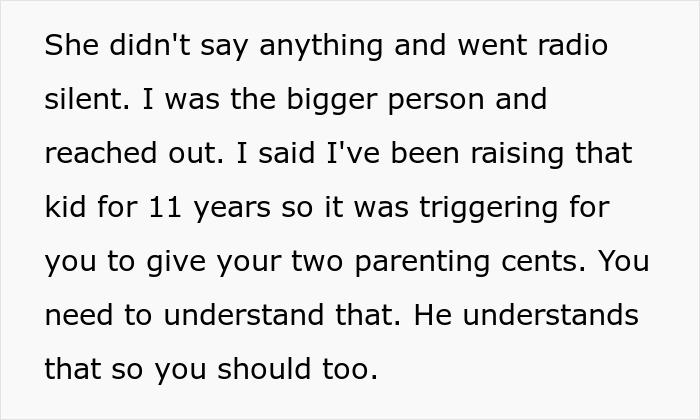

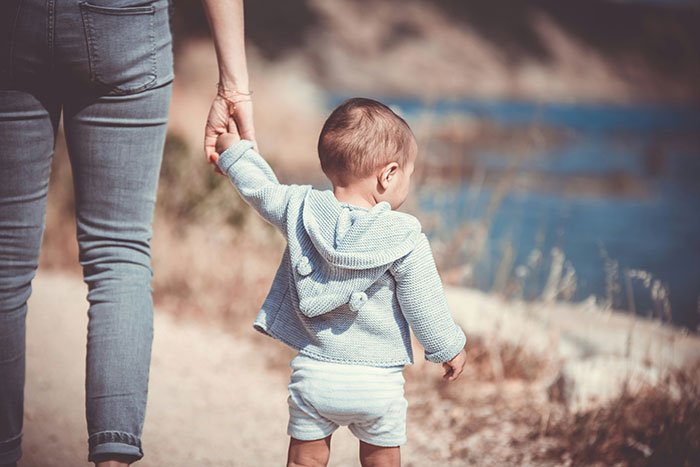
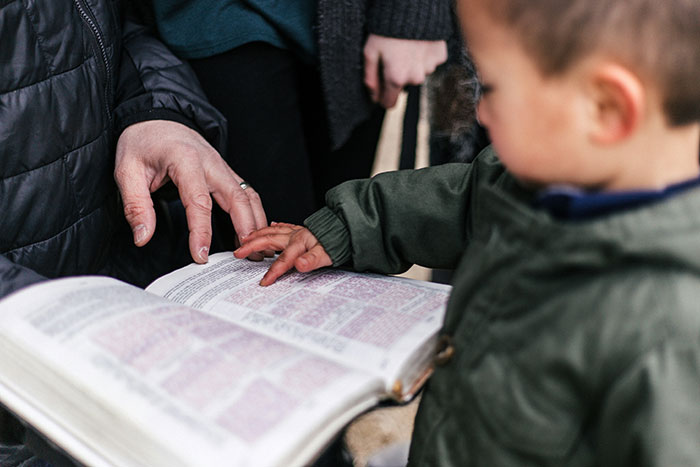
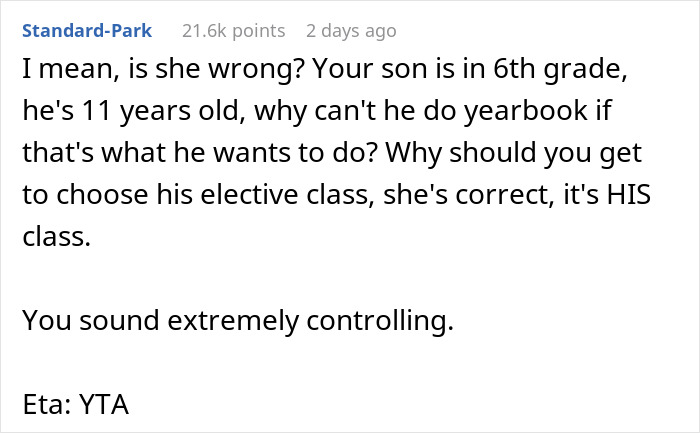
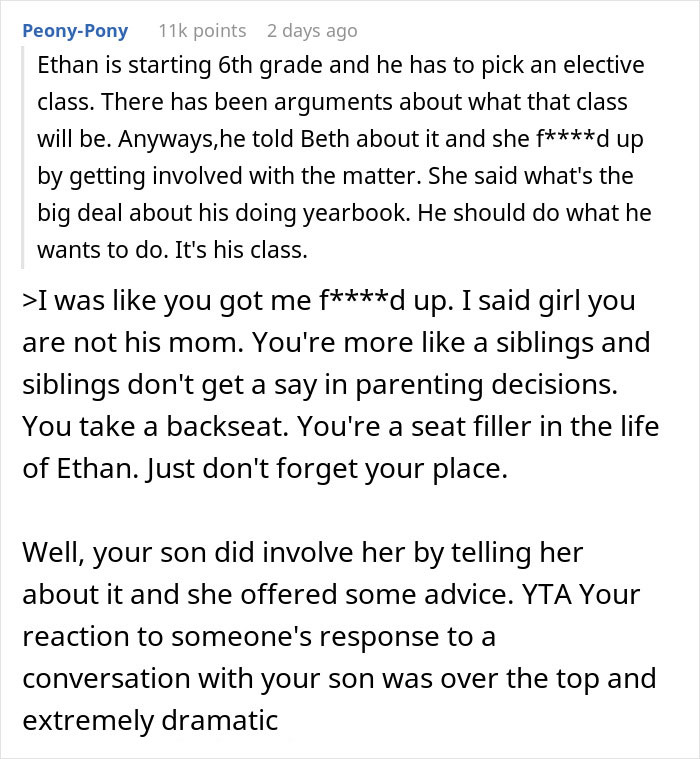
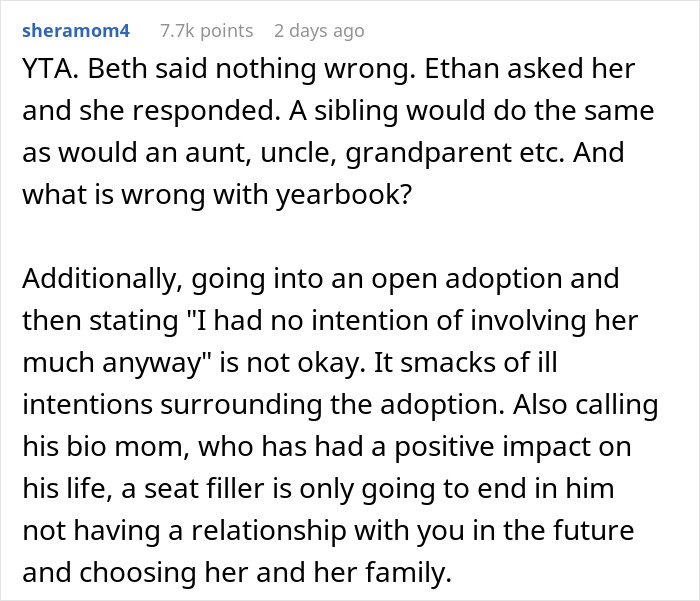

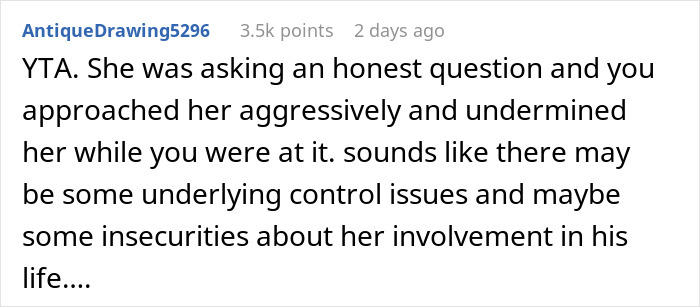
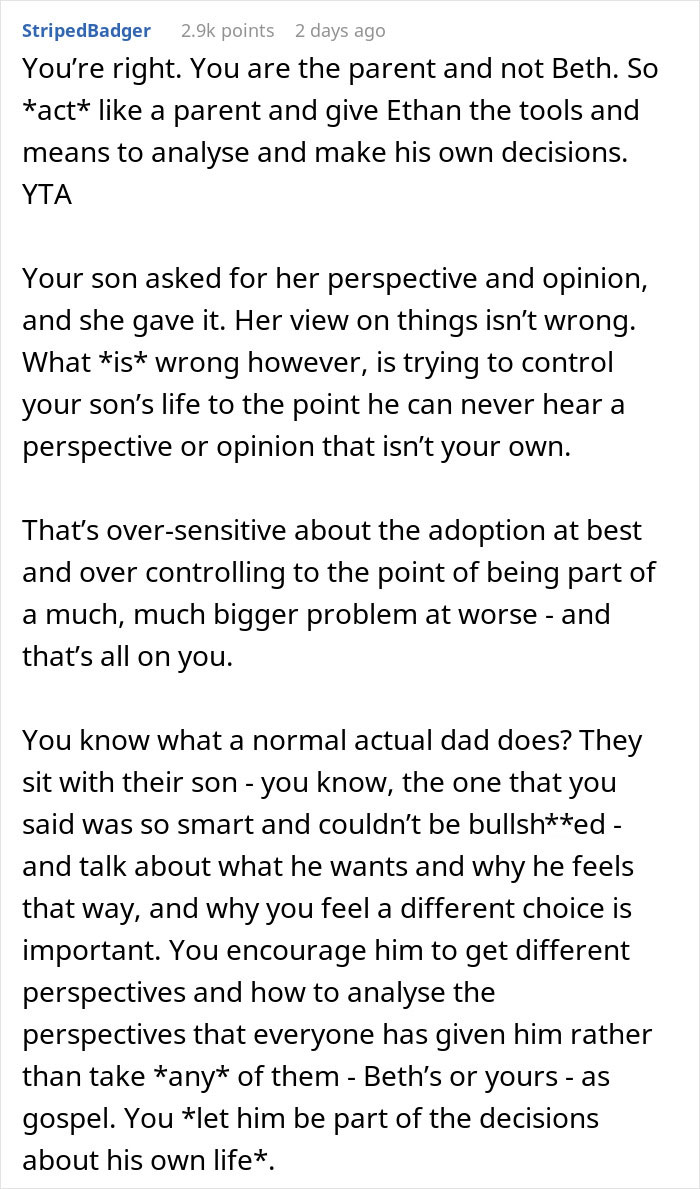
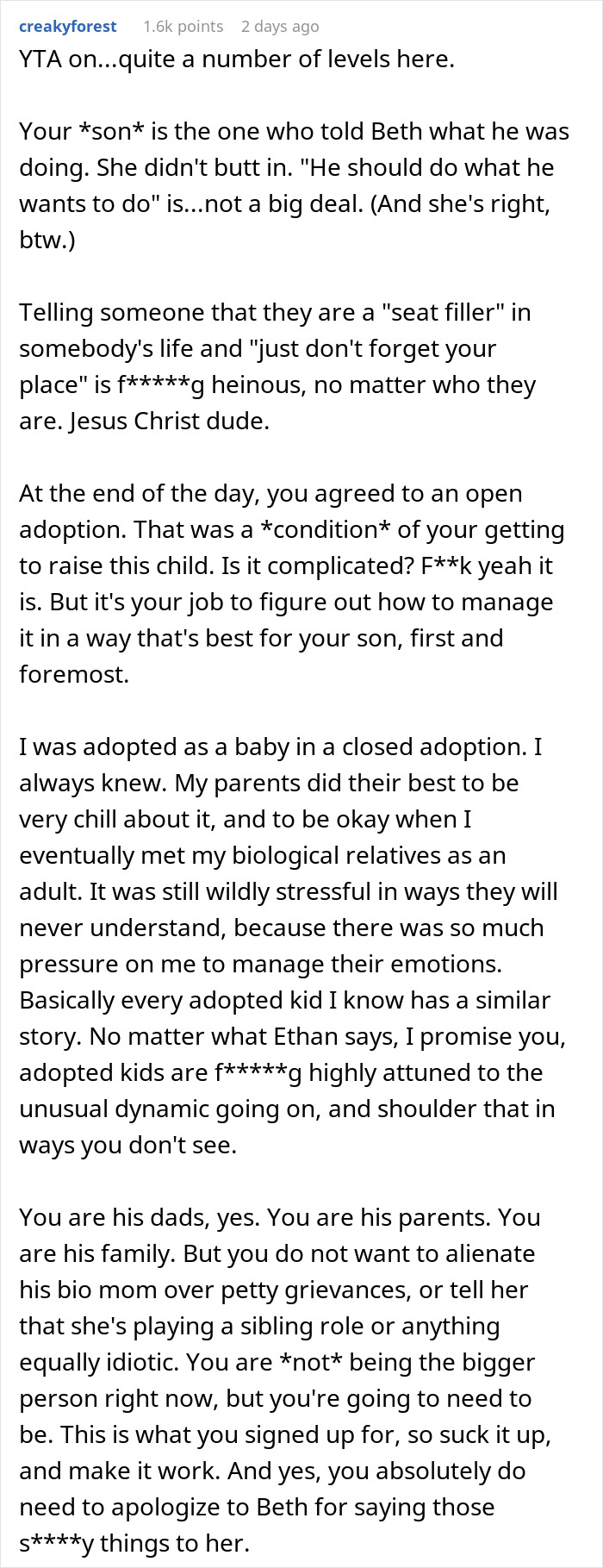

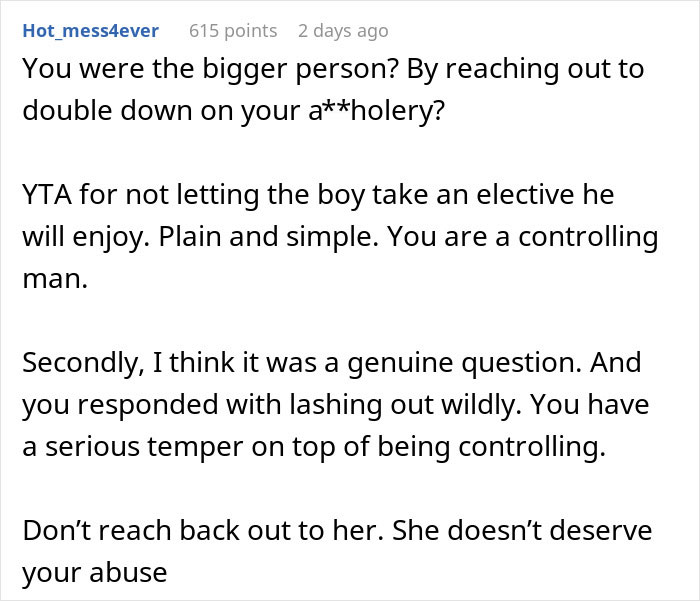

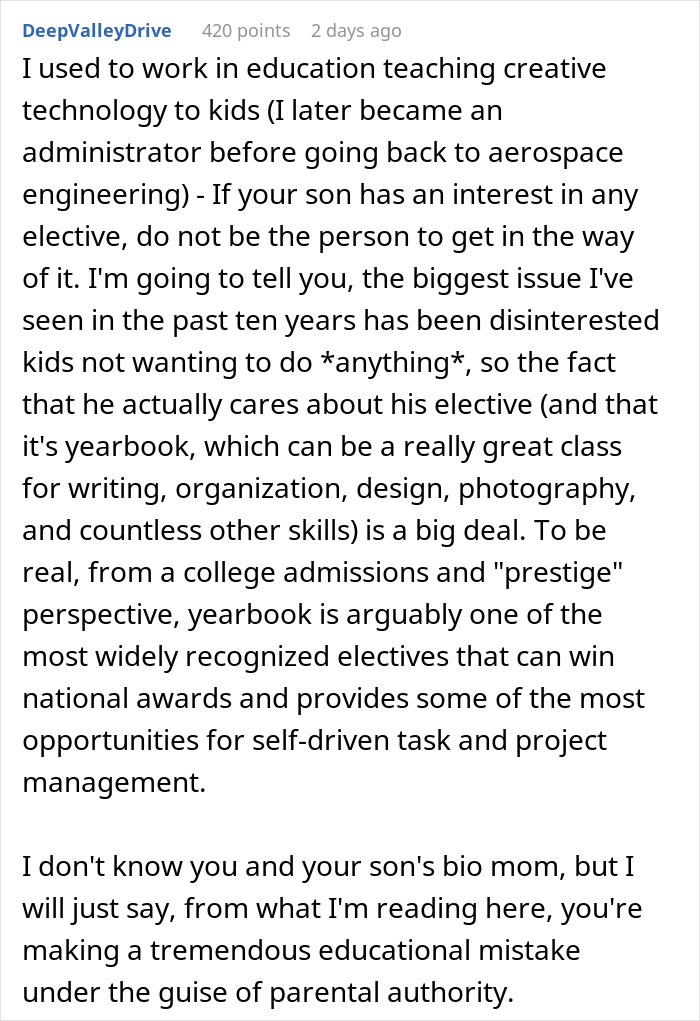
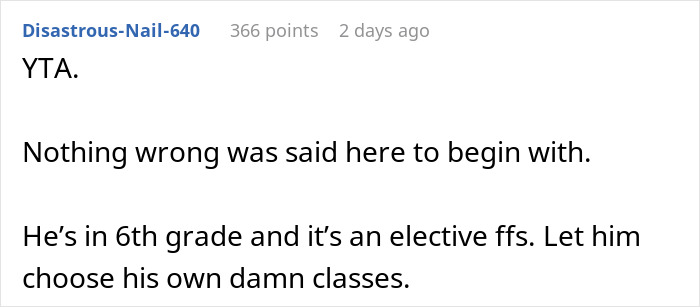
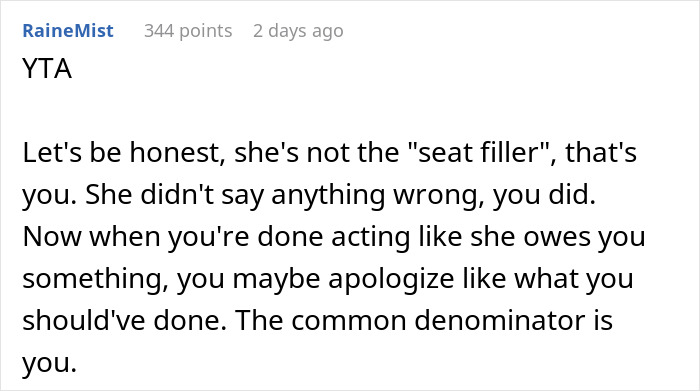

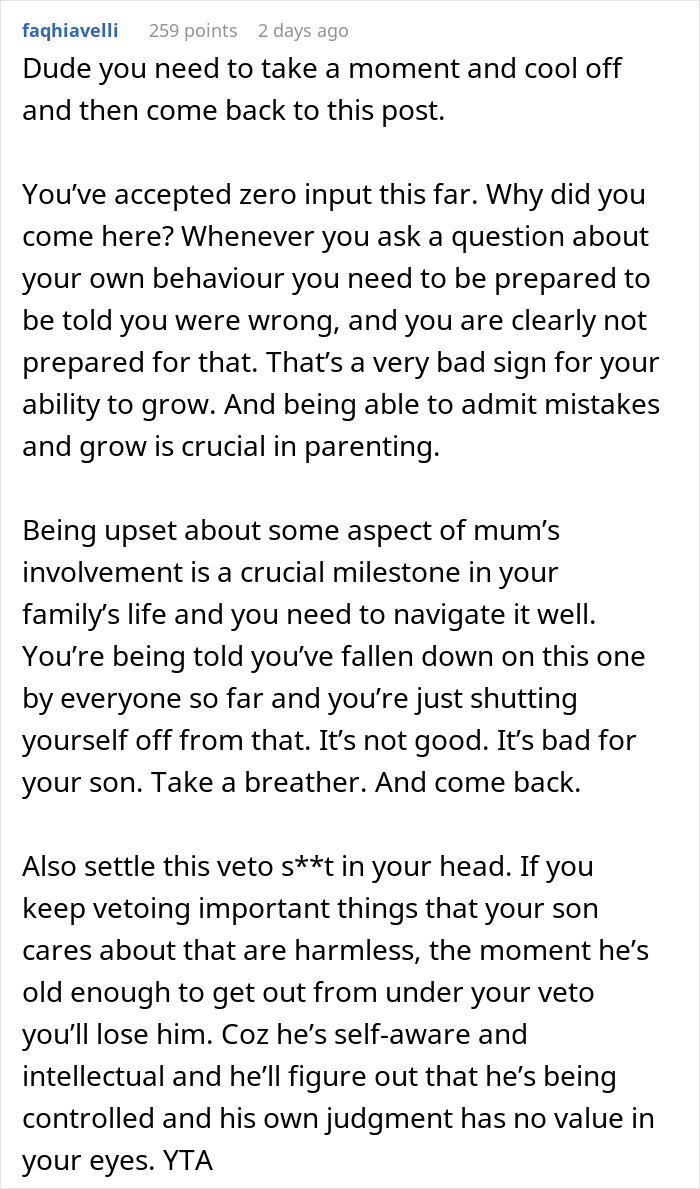
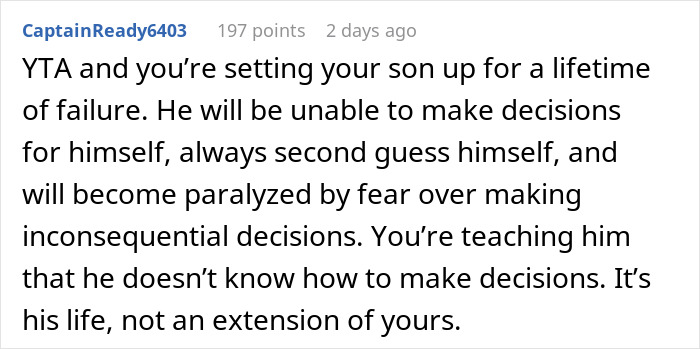
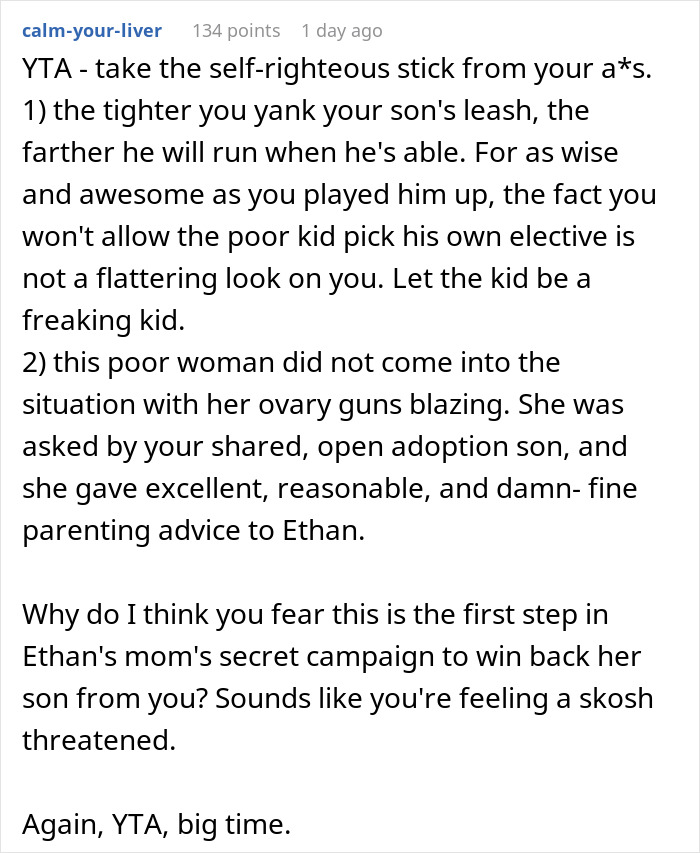
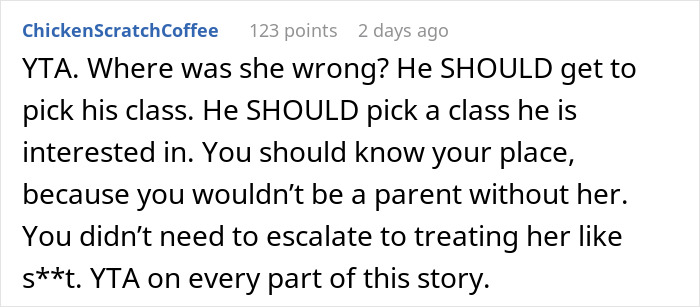
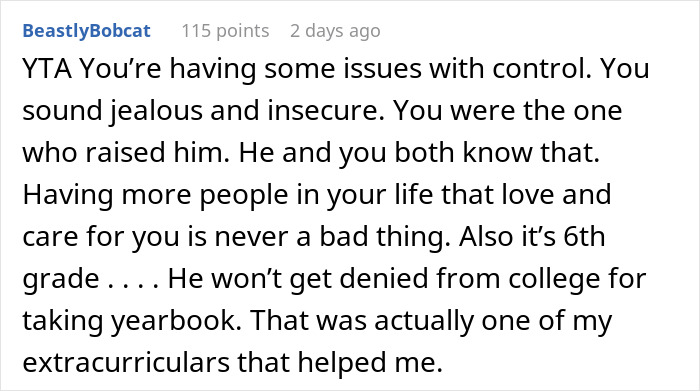

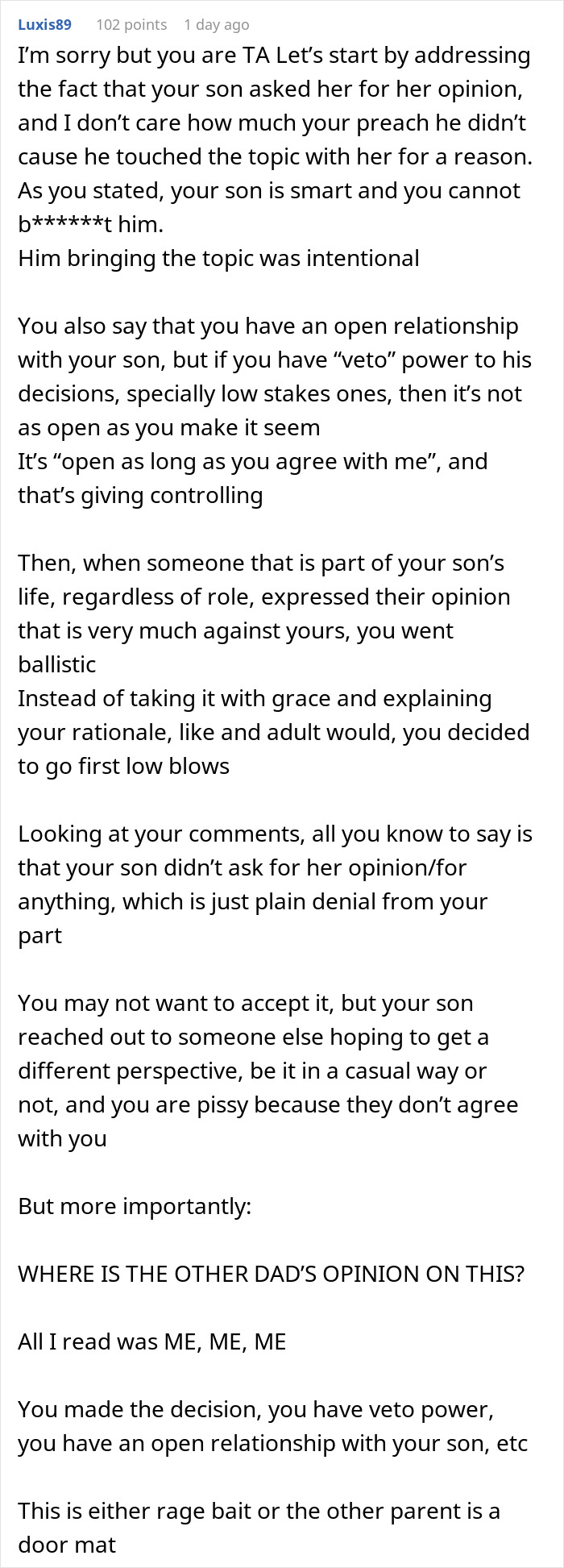
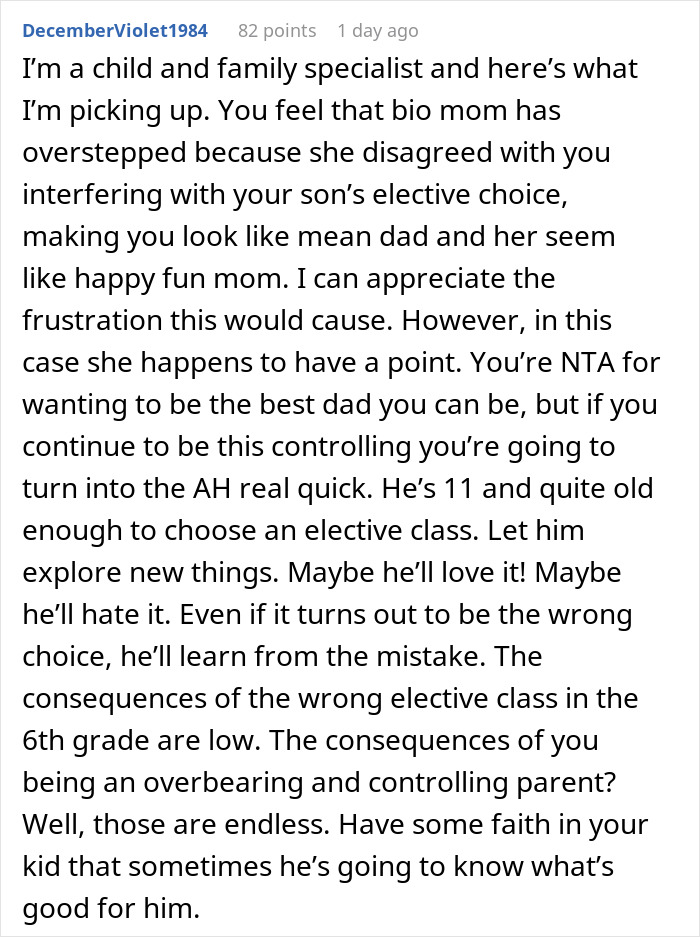
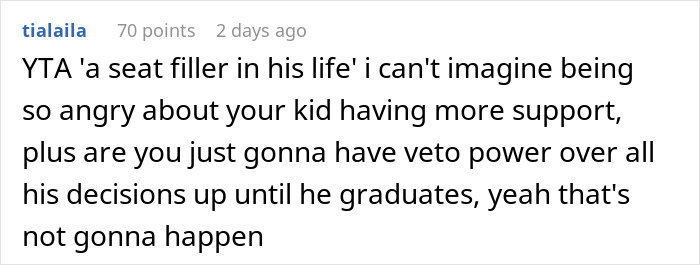
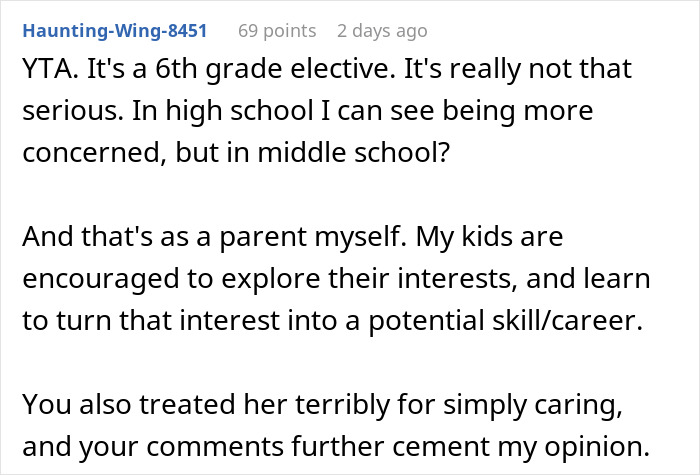
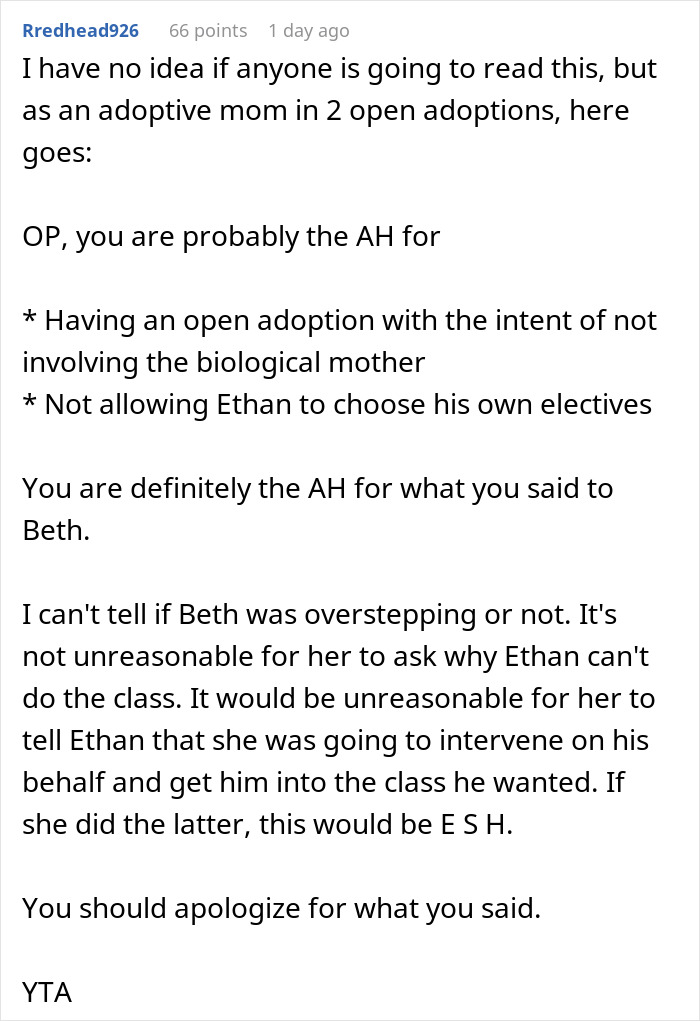
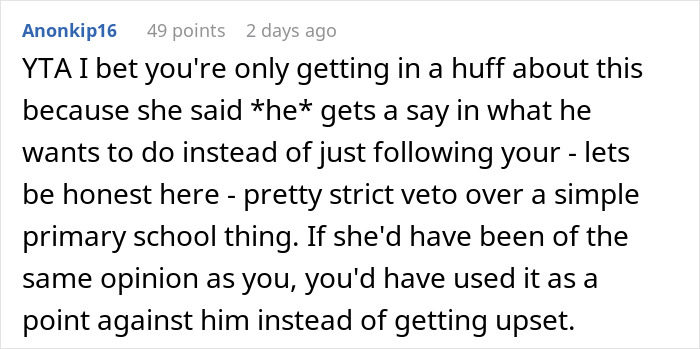
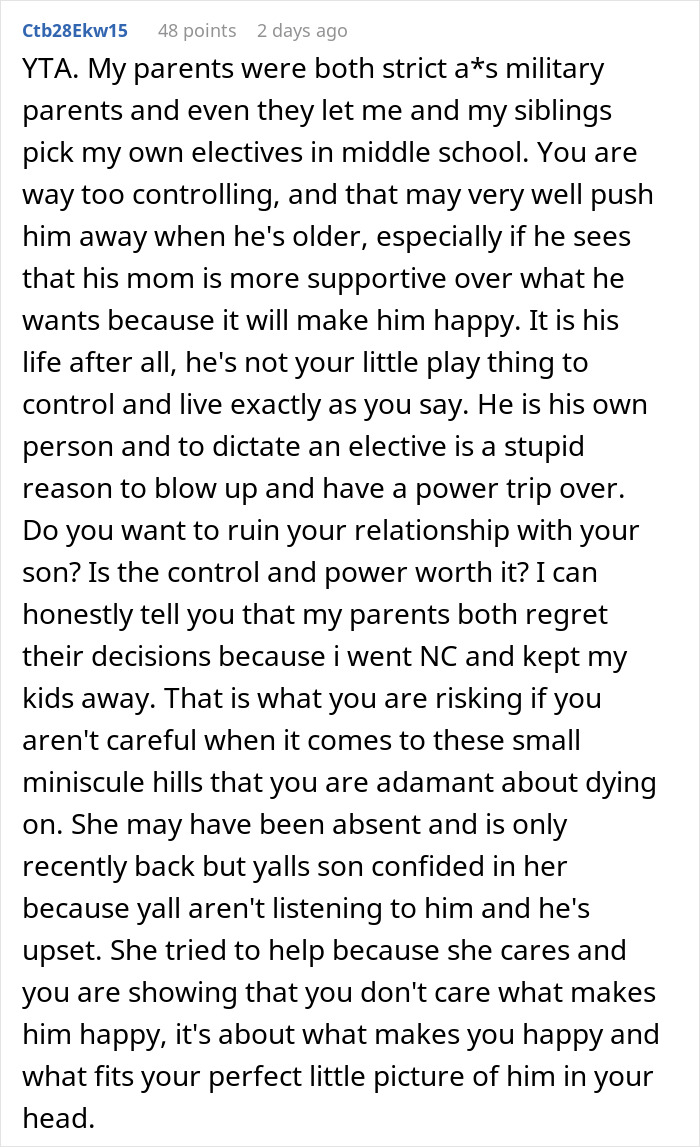
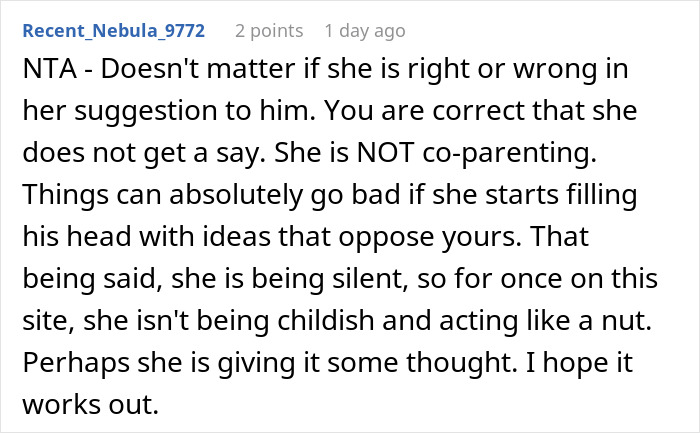
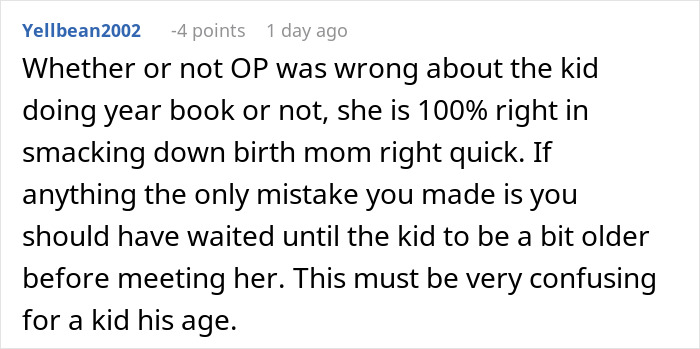

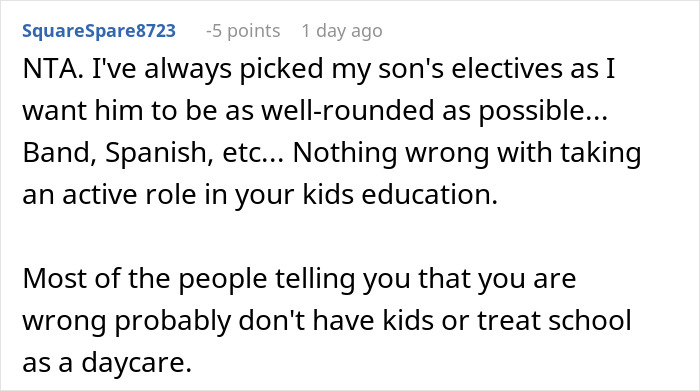









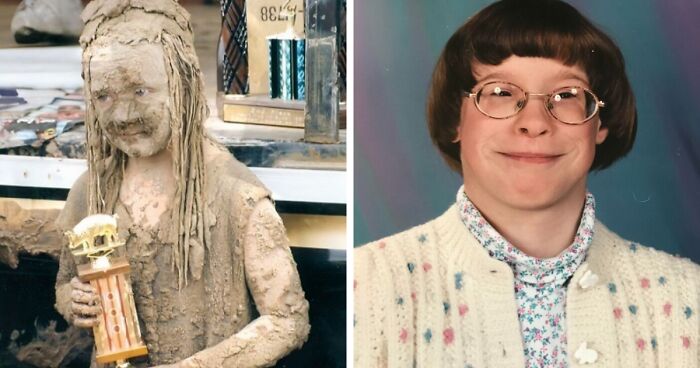






















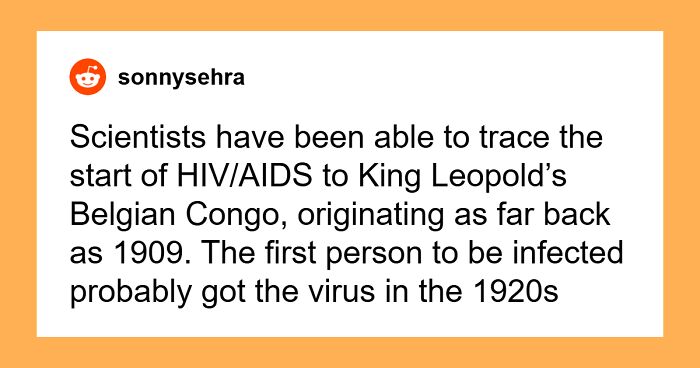










39
60